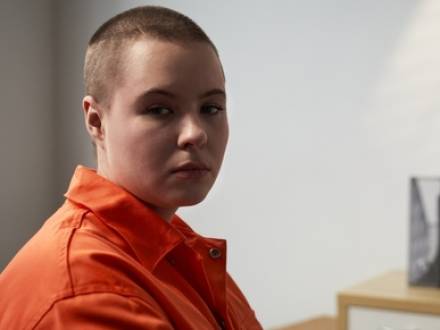Thirteen-Year-Old Arrested in New Haven for Juvenile Homicide
 New Haven police recently arrested a 13-year-old in connection with the shooting death of a 15-year-old, charging the teen with murder. The altercation occurred at the Lincoln Bassett Community School in Connecticut. Police believe the shooting stemmed from previous fights between the two teenagers. The New Haven police chief said the case will be heard in juvenile court.
New Haven police recently arrested a 13-year-old in connection with the shooting death of a 15-year-old, charging the teen with murder. The altercation occurred at the Lincoln Bassett Community School in Connecticut. Police believe the shooting stemmed from previous fights between the two teenagers. The New Haven police chief said the case will be heard in juvenile court.
This case raises some complex questions regarding how the state treats children charged with murder, and what legal protections apply to a juvenile facing criminal charges. There is much at stake when a child faces murder allegations. Parents must consult with an experienced Stamford, CT juvenile criminal defense lawyer to minimize the long-term consequences of these charges.
When Can a Juvenile Case Be Transferred to Adult Court in Connecticut?
In the state of Connecticut, the minimum age for a child’s criminal case to be transferred to adult court is 14, and this is only for specific violent crimes. Juveniles under the age of 14 are not treated as adult offenders, regardless of the crime. A juvenile who is at least 14 years old can be transferred to adult court for certain serious crimes, such as Class A or Class B felonies. In the case described above, since the child is 13 years old, the case would be handled exclusively through the juvenile court system.
What Are the Legal Mechanisms for the Transfer of a Juvenile to Adult Court for Murder?
A juvenile who is 14 or older and is accused of murder (a Class A felony) is automatically transferred to adult court under CGS Section 46b-127(a)(1). The child’s counsel cannot argue against the transfer or file a motion to oppose it in this case. The juvenile will be arraigned in the regular Superior Court criminal docket, and the state’s attorney then has 10 working days to file a motion to transfer the case back to juvenile court. If no such motion is filed, the file remains sealed until the case is resolved. A juvenile who is younger than 14 will be retained in juvenile court and will face the following process:
- After the arrest, a judge will review the case within 24 hours to determine whether detention will continue or the child will be released to a parent or guardian.
- The child will be formally charged and will enter a plea of guilty or not guilty.
- If the child denies the charges, a pre-trial conference is scheduled, and potential plea agreements or a case dismissal will be discussed between the defense and prosecution.
- A pre-dispositional study is prepared, which will include the child’s school performance, history, and any mental health concerns.
- If no agreement is reached, the case proceeds to an adjudicatory hearing before a judge.
- If the child is adjudicated delinquent (found guilty), the judge will determine the sentence, which is focused on rehabilitation.
- The court may order rehabilitative services, therapy, or placement in a secure residential facility that may not extend beyond the age of 20.
What Are Key Legal Considerations Concerning Juveniles Charged with Serious Crimes
The age and competency of the juvenile in question will be a consideration, both for sentencing purposes in juvenile court and as an argument against trying a juvenile who is 14 or older as an adult. The court must also consider such mitigating factors as brain development, peer influence, and prior trauma. There are societal arguments both for and against the prosecution of very young defendants as adults. The best interests of the child, which is the overriding concern in most proceedings that involve juveniles, must be balanced against societal protections and the juvenile’s potential for rehabilitation.
Contact a Fairfield County, CT Juvenile Defense Lawyer
When a child as young as 13 commits a violent offense, it is likely to be both high-profile and emotionally charged. Juvenile homicide defense requires a specialized approach from a highly skilled Stamford, CT criminal defense attorney from Law Offices of Daniel P. Weiner who has a deep understanding of the juvenile justice system in the state. Our attorney will guide you through every step of the process, fighting hard for your child’s freedom and future. Call 203-348-5846 to schedule your free consultation to discuss your child’s case.







